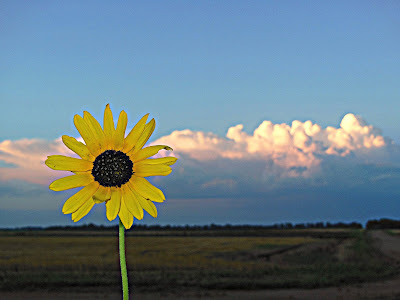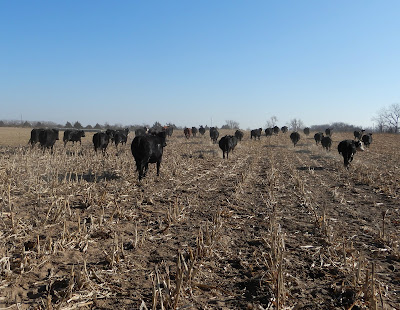We've heard it all our lives: Don't judge a book by its cover.
And yet ... I did. The cover helped "sell" this book to me. The illustration by Brad Sneed provided the "eye candy" as I perused the Kansas books at the Nora E. Larabee Library in Stafford.
I prefer reading fiction. But the first book in the Stafford library's adult reading challenge required a Kansas book checked out of the library. Both of the reading challenges I'm participating in this year are urging me out of my "same old, same old" literary comfort zone.
So a non-fiction Kansas book it was! And, as we celebrate Kansas' 157th birthday today - January 29 - it was a timely read.
The book, edited by Thomas Fox Averill, had a few too many politically-themed essays for my taste. My favorite stories were the ones that focused on the Kansas landscape or culture. An unlikely bonus? One of the essays (more accurately, a poem) had a Stafford County connection.
In Averill's introduction to the piece, he says that May Williams Ward edited The Harp, a poetry magazine, from her home in Belpre for 6 years. From Belpre? Really? She
died in Wellington in 1975 at the age of 93. She would have lived in Belpre in the 1920s. In a bio I found online, it says that her husband's job would have brought her to Edwards County (a neighboring county just to the west of my Stafford County):
She married Merle Ward in 1908 in Osawatomie’s Old Stone Church that had been built by John Brown’s brother-in-law and nephew. And John Brown’s grand-niece played the organ at their wedding. The Wards moved wherever Merle’s grain elevator business took them, first to Lamar and Pueblo, Colorado, then to Spearville, Montezuma and Belpre, Kansas. When the Great Depression and the Dust Bowl put an end to his grain business, the couple moved to Wellington in 1933 where they took over ownership and management of his family’s hotel. The Wards remained in Wellington for the rest of their lives.She published six volumes of poetry, often illustrated with her own woodcuts. This poem was featured in What Kansas Means to Me (photo illustrations by me):
From Washburn University
Sky-Mountain
May Williams Ward, 1927
Prairie-land is golden,
Airy, wide;

The sky our only mountain;
Who would choose a small land
Where the hills
Steadily asserting
Granite wills,
Narrow all horizons,
Stand apart?
Ah, my Kansas prairie
In the sky-mountain's heart.
Zula Bennington Greene wrote two short essays in the book that also resonated with me. The Cottonwood and the Prairie were written by Greene, who was best known as Peggy of the Flint Hills, a name she used for her newspaper column begun in the Chase County Leader-News in 1928.

The early settlers planted the cottonwood around their houses because it was quick-growing. Its frilly daintiness must have warmed the heart of the pioneer woman and its soft rustle whispered to her of courage and faith.
Through the heat of the summer it stands cool and clean and shining. The leaves shake off dust as nervously as a fluttery housewife polishes the furniture, never content to sit a moment with quiet hands. In the night it makes a rain-sound on the roof.
Zula Bennington Greene
On this Kansas Day, I am thinking about those pioneers who settled this land I now call home. On January 29, 1861, Kansas was admitted to the Union and became the 34th star on the American flag.
Too often, we Kansans have an inferiority complex. We apologize and somehow buy into the outsiders' image that ours is a flyover state. We know that Oz was in technicolor while Kansas was boring black and white.
But people who believe that have never really opened their eyes ...
... to the beauty of sunrise ...
... and sunset ...
... and the color and variety in between.
Even in the more sepia tones of wintertime in Kansas, there is beauty.

I'm thankful that both sides of my family saw beauty and opportunity here. (Click on the links to read more about how the Moores and the Neellys came to Kansas.) Randy, who is a fifth-generation farmer in his family, still owns a pasture that's been in his family more than 100 years.
A final stanza of a poem by Kenneth Wiggins Porter (also from What Kansas Means to Me) seems a fitting tribute to my ancestors and those who settled this land 157 years ago:
Many came to this land and some stayed.
As for those who did not
God grant that they found greener pastures.
As for those who dug in and survived,
their names are familiar to you,
are your own, in whole or in part,
the names of your children.
Kenneth Wiggins Porter, 1946
Happy Kansas Day!















































